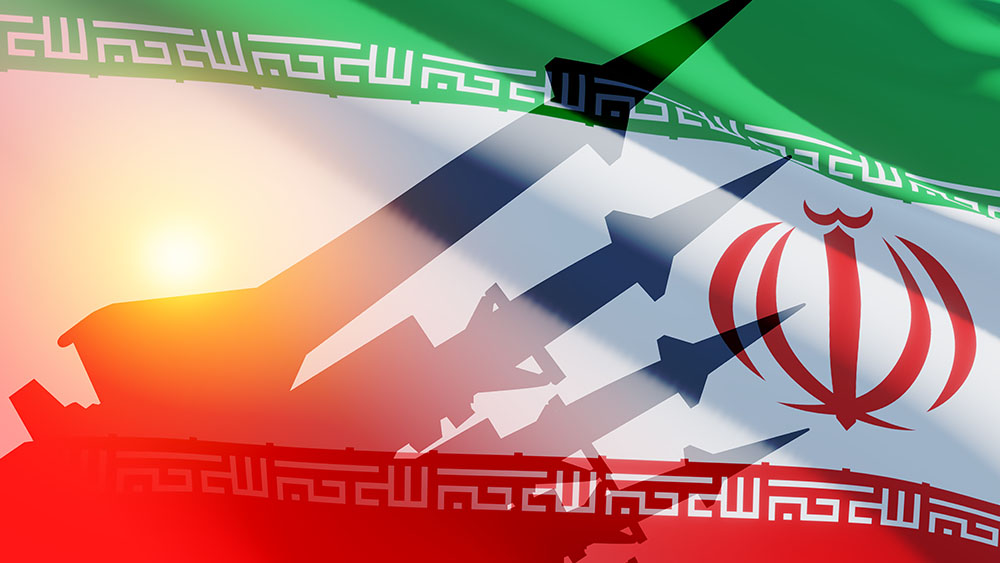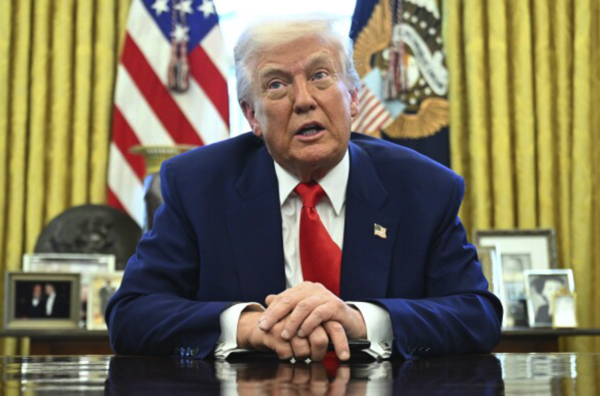 Parler
Parler Gab
Gab
- U.S. orders embassy personnel and military dependents to leave Iraq and the Middle East amid deepening risks with Iran.
- Iran’s defense minister threatens strikes on U.S. bases, citing upgraded missile capabilities and unresolved nuclear negotiations.
- President Donald Trump expresses reduced confidence in diplomacy, citing Tehran’s refusal to abandon enrichment programs.
- IAEA warns Iran’s noncooperation undermines verification of its nuclear program’s peaceful intent.
- Sixth round of talks loom as military force remains a U.S. option if talks collapse.
Diplomatic retreat and rising stakes
The decision to evacuate comes as the International Atomic Energy Agency (IAEA) lambasted Iran for stonewalling inspections and enriching uranium at levels exceeding civilian needs. Director-General Rafael Grossi noted Tehran’s failure to resolve “safeguards issues,” concluding the agency cannot confirm its program’s peaceful nature. Simultaneously, U.S. Defense Secretary Pete Hegseth authorized military dependents in Bahrain and Iraq to return stateside, though Al Udeid Air Base in Qatar remains unaffected. State Department spokesperson Ned Price emphasized the move was “precautionary,” not signaling imminent conflict. Yet, Nasirzadeh’s fiery remarks underscored Iran’s growing confidence. “All U.S. bases in the region are targets,” he asserted, citing recent missile tests and alliances with Russia. His boasts followed reports that Tehran is quietly deploying Russian-made S-300 air defense systems around nuclear sites — a stark reminder of its pursuit of military modernization.Diplomacy with a gun to the head
The president admitted “much less confidence” in concluding a nuclear deal, lamenting Iran’s stubbornness during an interview with the New York Post. “They’re asking for things you can’t do,” Trump said, referencing Tehran’s insistence on uranium enrichment. His remarks echoed concerns from his administration, which described Iran’s negotiating stance as increasingly inflexible. Despite the gloom, U.S. negotiators aim for a breakthrough during indirect talks set for Sunday in Oman. Yet doubts loom: Iran’s Islamic Revolutionary Guard Corps has publicly dismissed earlier U.S. proposals as insufficient. “They won’t give up the bomb,” Defense Secretary Hegseth told lawmakers, outlining contingency plans to disable Iranian nuclear facilities if talks fail. Critics argue Trump’s approach mirrors his predecessor’s flawed 2015 deal, which he famously scrapped in 2018 during his first administration. But Trump’s team insists red lines are firmer this time. “Enrichment is off the table — period,” said a senior advisor.History repeats — with higher risks
The impasse mirrors a pattern of Tehran exploiting diplomatic pauses to expand its nuclear program. During Obama’s administration, Iran allegedly stashed centrifuges and enriched uranium far beyond agreed limits. Current talks face more peril: Iran now possesses advanced Russian tech and longer-range missiles, raising the stakes for any U.S. military response. The IAEA’s warning about “sanitized” sites further complicates inspections, suggesting tampering to hide illicit activity. “Iran’s behavior is a stark departure from its earlier claims of transparency,” said Grossi, delivering a withering assessment during this week’s Vienna session.A crossroads for global nonproliferation
The world watches as diplomacy teeters on the edge of war. Should talks fail, President Trump faces a choice between unilateral strikes—potentially drawing regional allies into conflict—or renewed sanctions with uncertain leverage. The Middle East brace for upheaval as Iran tests the limits of Western resolve. Sources for this article include: YourNews.com Breitbart.com Reuters.comCoal’s unyielding reign: Asia’s reliance and U.S. policies fuel global growth
By Willow Tohi // Share
Biometric surveillance quietly expands into U.S. sports venues
By Laura Harris // Share
FDA halts clinical trials shipping American cells overseas due to national security risks
By Willow Tohi // Share
Governments continue to obscure COVID-19 vaccine data amid rising concerns over excess deaths
By patricklewis // Share
Tech giant Microsoft backs EXTINCTION with its support of carbon capture programs
By ramontomeydw // Share
Germany to resume arms exports to Israel despite repeated ceasefire violations
By isabelle // Share










